- Home
- Patrick Robinson
Hunter Killer Page 32
Hunter Killer Read online
Page 32
“No, of course not. But getting out of Saudi oil was a very fortuitous and unusual thing to do. And I admit we have no proof it was French submarines that fired the missiles. But there were two French Rubis-class ships in the area, and they have both disappeared. Either of them, or even both, could have done it. And there was no other submarine within thousands of miles with the same capability. Except our own. And I happen to know we’re innocent.”
“You sure you’re not still working here somewhere, Arnie?”
“Sometimes feels like it, I’ll say that.”
“Why don’t you consider coming back and working with me?”
“For about ten thousand reasons, the main one being the likelihood of my beautiful wife leaving me.”
“Well, if you ever change your mind…”
“No chance, Paul. But I quite like hovering on the outside, lending a hand and an opinion where I can.”
“Do you have any further opinion on French involvement in this latest catastrophe?”
“Yes, sir. Yes, I do. The NSA is working on a very curious satellite signal they picked up emanating from an area north of Riyadh, the night before the battle for Khamis Mushayt. Some kind of coded message the Brits picked up at that hotshot little listening station they maintain in Cyprus.”
“Why is that significant?”
“Because the transmission was in French. Coded French.”
“Yeah? I didn’t hear about that.”
“I don’t suppose you will until they crack it. The intelligence community, as you know, does not make a habit of boring the President to death with half-assed information. But I know they’re on the case.”
“Doubtless your young Australian buddy, Lt. Commander Ramshawe?”
“He’s the one, sir. Shouldn’t be surprised if someday he made the youngest NSA Director ever.”
“What does he think—about the overall situation regarding France?”
“He is absolutely certain the French helped the rebel Saudis. And there’s another part to this conundrum. Last August, two hit men from the Mossad made a valiant attempt to take out the Commander in Chief of Hamas, failed, and were both killed.”
“Is that significant to us?”
“Yessir. It is. Because they made their attempt in the French city of Marseille.”
“So? Where’s the connection?”
“Sir, Lt. Cdr. Jimmy Ramshawe wants to know what the C-in-C of Hamas was doing in a French city, plainly under the protection of the French government, six months before a bunch of towel-headed brigands took control of Saudi Arabia.”
“You mean, Arnie, in conjunction with the oil situation, France getting out of Saudi product? And the submarine possibility? And the French coded signal from Riyadh a few hours before the battle? Was the Hamas Chief involved in the command of the assault team? All that?”
“Now, sir, you’re beginning to think like an intelligence officer.” Admiral Morgan smiled. “And remember this point, above all else: when something absolutely shocking happens on a global scale, the solution is never down to one thing. It’s always down to everything.
“And Lt. Commander Ramshawe, personal assistant to our esteemed NSA leader, George Morris, believes he is building a very powerful case against France. And if he can nail ’em, that’s your way out of this whole goddamned mess. Because then you’ll attack the French verbally, shouting and yelling about their unfailing selfishness, their total disregard for anyone else.
“And you tell the world how they helped bring down the Saudi King entirely for their own profit. Never mind half the world falling into a blackout, never mind hospitals and schools closing down because of power shortages. Never mind stock market crashes, highways coming to a halt, the world’s airlines grounded through lack of fuel.
“They—the great, imperious, and haughty French, la grande civilisation—must go their own way, steering their own course along the road to prosperity. Gallic pricks. And you will step up to the plate and demand, with all the wrath and righteous indignation of the United States, that France be hauled before the United Nations to explain their conduct.
“You will once more look like the leader of the world. But trust me. You cannot sit here and hope to Christ this stuff goes away. Because it’s not going to.
“And if the French have really done this, sir—effectively taken Saudi oil off the world market, for their own ends—they deserve every last kick in the ass we can give ’em.”
“Yes,” said the President. “That they do.”
SAME DAY, SAME TIME
NATIONAL SECURITY AGENCY
Lt. Cdr. Jimmy Ramshawe would have been pacing his office, except the floor was such a complete mess with piles of paper he would probably have killed himself. As it was, he sat staring at transcripts of messages and wondering why he was drawing a complete blank on every lead he had on the shattering events in Saudi Arabia.
The two French submarines were still missing. And for the umpteenth time Ramshawe counted the hours since the missiles must have been fired—0100 local on Monday morning…that’s sixty-five hours, and all that time the two missing Rubis, the Perle and the Améthyste, were moving away from the datum, probably at a dead-silent seven knots.
Ramshawe took his dividers and assessed where on the chart the submarine in the Gulf had fired her missiles, calculating that they had also landed and retrieved a team of frogmen…somewhere up here, northeast of the Abu Sa’afah oil field…must have been somewhere up here, because they couldn’t make a getaway straight through the bloody oil field…they must have gone north.
He hit the buttons on his calculator, multiplying sixty-five hours by seven knots…455 nautical miles…that puts him somewhere here, through the Strait of Hormuz, and about 120 miles southeast running down the Gulf of Oman. One more day, and she’s free and clear, steaming down the Arabian Sea in deep water—straight to the French naval base at La Réunion, unless I’m very much mistaken.
Ramshawe adjusted his dividers to appreciate distances in the Red Sea…the second submarine fired at the same time, somewhere off Jiddah…and they also ran away making seven knots…455 nautical miles…that puts them in the narrowing part of the Red Sea, off this long coastline of Eritrea and Ethiopia…one more day and they’re through the Strait of Bab al Mandeb, home free, running out of the Gulf of Aden…straight to La Réunion.
Ramshawe considered this was essentially a blind alley. The French would admit nothing, probably would not even reply to an inquiry from the United States. And yet he could not stay away from the possible routes of the Perle and the Améthyste.
“I just wish to hell one of the other leads would come up,” he muttered. “Maybe a little more on the Frog in the Desert. Maybe a fix on where his message went. If we could just find out who dined with Major Kerman that night in Marseille. Anything would help. And what about the new Saudi King confirming that the French were getting the cream of the rebuilding programs in the oil fields?”
Ramshawe felt he was on the right track. He was certain this was all to do with France. But like many another detective before him, he was just waiting for a break, just a tiny chink of light in some obscure corner that might one day illuminate the whole picture.
“Doesn’t seem much to ask,” he stated to the empty room.
“Just one small break for Jim, one giant leap for the industrial world.”
At 1100 local time, right there in the National Security Agency, he got it.
The CIA were just beginning to push through the system the firsthand reports from their own people in Riyadh. That included several field officers working for Aramco, several informants who worked for the agency out of local businesses, banks and construction corporations, and, of course, the serious professional operators inside the U.S. embassy.
Most of them were Americans, and all of them were passing back their accounts of the events in the capital city as it fell to the “forces of the people.” And there was little in dispute, since almost everyone descri
bed the military convoy led by the big M1A2 Abrams tanks trundling through the city, taking the ministry, taking the television stations, taking the airport and then the royal palaces.
There was of course the hair-raising account of the suicide bomber crashing into the King’s palace, and there were hazy accounts of the sporadic firefights inside the walls of the palace, and the burning of the two Chinooks that many people had seen fly over the Diplomatic Quarter. But it was the firsthand report from the veteran U.S. diplomat Charlie Brooks that instantly caught the eye of Lt. Commander Ramshawe. Because this was a man who had served the United States in many parts of the world, and understood the stakes. And what Brooks had written, from his vantage point along the direct route of the convoy, was nothing short of riveting. At least it was to Jimmy Ramshawe.
“All of the armored vehicles carried the insignia of the Royal Saudi Land Forces, and it was assumed we were watching a military exercise, except of course the presence of the Abrams tanks was unusual. However, I was struck by the presence of the commander who was standing up in the turret of the leading tank. He was a heavyset bearded guy wearing combat gear and a red-and-white Arab ghutra on his head. Like all of the other soldiers he was carrying a submachine gun and an ammunition belt across his chest.
“I was certain I recognized him, and of course I had to consider the fact I may have encountered him at any number of Saudi diplomatic receptions. It is perfectly usual that we meet serving Saudi military officers. And this man was most definitely an Arab in appearance.
“However, it took me a few minutes to place him. And I am now certain where I first met him. He was the leader of the French Special Forces team that rescued the staff of the U.S. embassy in the Congo, back in June 1999. I refer to the embassy of U.S. Ambassador Aubrey Hooks, in Brazzaville, where I served for several months.
“The forward commander on that leading tank was the same man. He had carried my bags into the French Army truck outside the Congo embassy. I stood with him while he loaded the packing cases full of documents, and I shook his hand when we boarded the aircraft for Kinshasa. He was definitely French. His men called him, I think, Major Chasser…”
Jimmy Ramshawe almost choked on his stone-cold coffee.
He read the communication over and over, digesting the stick of dynamite Charlie Brooks had sent by encrypted e-mail direct to the CIA sometime during the past couple of hours. And essentially his question was the same as Brooks’s: what the hell was this French Special Forces officer doing leading an armored convoy to attack the palace of the King of Saudi Arabia in the middle of the capital city of Riyadh?
He realized of course the explanation could have been very simple. Many Middle Eastern defense ministries had, over the years, employed retired Special Forces combat soldiers to help train their own armies. It was not unusual to find SAS men helping the Israelis. Indeed Maj. Ray Kerman had served in just such a role.
And certainly the Saudis had employed many Army, Air Force, and even Naval special advisers from Great Britain, the United States, and, less often, France. The officer in the leading tank may well have been hired by the Saudis after he had retired from the French Special Forces.
But, according to Charlie Brooks, this guy was not serving in the capacity of a “special adviser.” This guy, a foreign national, was commanding the entire Saudi assault force, the one that took down the King.
Lt. Commander Ramshawe understood something of those desert people, and he had read often of the fierce pride of the Bedouin. Ramshawe loved the writing of the great Arabist Wilfred Thesiger. And he knew one thing for sure: even if this was a rebel Arabian army, somehow split from the main Saudi military machine, it was impossible it was being led by a “bloody Frenchman.”
Thoughts flooded through Ramshawe’s mind. Was this the Frog in the Desert? Was this assault force in the Saudi capital half-French? Who the hell else was in those tanks? Was this a partnership between the new King Nasir and France? Or was Major Chasser just a bloke who’d emigrated to Saudi Arabia and somehow taken over the Saudi Army?
“Bloody oath!” muttered Ramshawe. “This Charlie Brooks has sure as hell lit up my little investigation…I don’t know where to start…except I have to run this Chasser character to ground in a real hurry.”
He picked up the report and headed along the corridor to see Admiral Morris, hoping to hell he was free to have a talk, and hoping to hell he had some hot coffee. Jimmy Ramshawe shuddered with anticipation at both prospects.
The Admiral was available, but his coffee was colder than Ramshawe’s. George Morris read the report from Charlie Brooks and looked up sharply. “Two priorities, Lt. Commander: One, we gotta find out about this Chasser guy. Two, have a quick word with the Big Man before you start.”
“Three,” added Ramshawe, “will I get us some hot coffee?”
“Four, thank Christ you asked,” replied the Admiral.
There was always a knowing repartee between these two that was unexpected—the lugubrious, wise, rigidly disciplined ex–Carrier Battle Group Commander, and the freewheeling U.S.-born Aussie who operated on instinct and intellect, brilliance rather than structure.
“I’ll call the Big Man while we’re waiting,” added Ramshawe.
He walked briskly back to his office, ordered coffee for the Director’s office, and dialed Admiral Morgan’s number in Chevy Chase. No reply. On the off chance, he hit the secure line to the White House and inquired whether Admiral Morgan was there.
“Who would the Admiral be visiting?” asked the operator.
“Couldn’t tell you that,” replied the Lt. Commander. “But I’d start with the President.”
A few moments later, the President’s secretary came on the line and said politely, “Lt. Commander, Admiral Morgan is in with the President right now. Would you like me to tell him you are on the line?”
“Please,” said Ramshawe.
Within ten seconds the rasping tones of Admiral Morgan came down the White House line to the National Security Agency, as they had done so many hundreds of times before.
“Hey, Jimmy. This urgent?”
“Yessir. One of our guys in the Riyadh embassy just filed a report identifying a former French Special Forces officer in command of the leading tank that attacked the Saudi King’s palace this morning.”
“Jesus Christ! Is that right? Tell you what, stay where you are. I’ll come out to Fort Meade and we’ll go over this whole French bullshit right away.”
Morgan replaced the telephone. He looked up at President Bedford and said, “I’d better go. We may have the breakthrough that will nail France to the wall. Can you get me a car?”
A car! At that particular moment, President Bedford would have wrapped up Air Force One in Christmas paper and given it to Arnold Morgan with love and gratitude.
A half hour later the Admiral was back in his old domain at Fort Meade, sitting in George Morris’s chair—where else?—reading the report from Charlie Brooks and complaining about the quality, and especially the temperature, of the National Security Agency’s coffee.
Nothing much had changed since Arnold Morgan first sat in that same chair a dozen years ago. He remained the glowering intelligence genius he always was—impatient, mercurial, bombastic, rude, and, according to his wife, Kathy, adorable. Just so long as you always remembered that his bite was one hell of a lot worse than his bark.
“I’ll send for a fresh pot,” said Jimmy Ramshawe, picking up the phone.
“Hot, Jimmy. For Christ’s sake tell ’em to make it hot. Lukewarm coffee makes lukewarm people, right?”
Ramshawe was not absolutely sure he got that. But he still snapped, “Aye, sir.” That was the response Admiral Morgan expected, and in Ramshawe’s opinion it was a small price to pay for the presence of his hero.
“Jesus, we’re damn lucky this Charlie Brooks was on the case,” said Morgan. “And, of course, we have just one main objective, aside from the goddamned coffee: we must find out the precise identity of Ma
jor Chasser. Get Charlie Brooks on the line.”
“Right away, sir,” answered Ramshawe, lifting up the telephone and asking the operator to connect him to Mr. Charles Brooks at the U.S. embassy in Riyadh, Saudi Arabia.
That took only three minutes. In every U.S. embassy around the world, everyone hops to it when the National Security Agency is on the line.
“Brooks here. I’ve been expecting you guys for the last hour…”
“Morning, Charlie,” said Ramshawe. “This is Lt. Commander Ramshawe here, assistant to the Director. I believe we’ve spoken a couple of times before?”
“Yes, we have, Jimmy. Guess you called about my report.”
“I did. Very interesting. ’Specially that bit about the commander on the leading tank.”
“That was him, I’m absolutely sure of that. Sorry I don’t know his correct name, but they kept referring to Major Chasser. I spoke to him several times in Brazzaville, and he was definitely French, but he looked like an Arab.”
“You’re spelling that C-H-A-S-S-E-R?”
“Well, I am. But I’m only guessing. That’s what they called him: Chasser, like Nasser.”
“Charlie, we may want to pursue this further. If we do, can you give us some guidance, from back in Brazzaville, where we might dig up some detail?”
“Well, I’d have to look that up. You see, I only saw him during that one day, the day we all got out. But I may have some stuff still on my computer, you know, a few names of contacts who might know more.”
“Okay, Charlie. We’d all be grateful. Maybe if I call in a couple of hours?”
“Don’t bother, Jimmy. I’ll e-mail the information.”
“That would be great. Just one more thing…did you have the impression this Chasser was definitely in charge of the assault convoy?”
“Oh, there was no doubt about that at all. His tank, the big Abrams, was out in front. He was calling the shots, both to passing civilians and to the rest of the force to the rear of his armored vehicles. I walked farther up the street, behind the convoy, and I saw Chasser’s vehicle slam straight into the gates of the royal palace. And he wasn’t asking anyone’s permission. Trust me.”

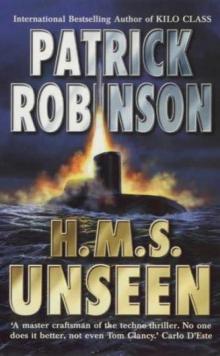 H.M.S. Unseen am-3
H.M.S. Unseen am-3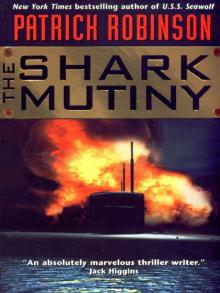 The Shark Mutiny (2001)
The Shark Mutiny (2001)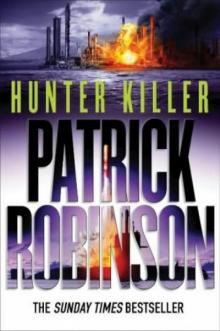 Hunter Killer am-8
Hunter Killer am-8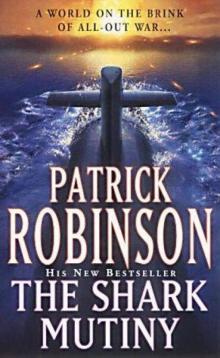 The Shark Mutiny am-5
The Shark Mutiny am-5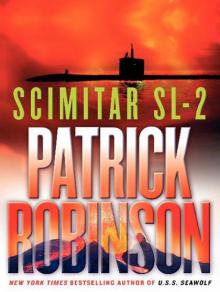 Scimitar SL-2
Scimitar SL-2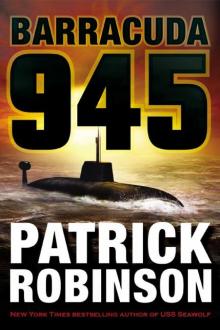 Barracuda 945 am-6
Barracuda 945 am-6 Hunter Killer
Hunter Killer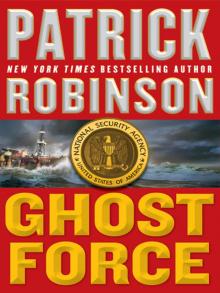 Ghost Force
Ghost Force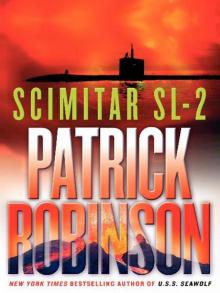 Scimitar SL-2 (2004)
Scimitar SL-2 (2004)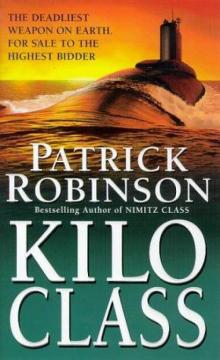 Kilo Class am-2
Kilo Class am-2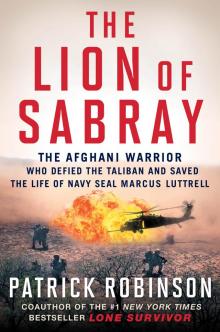 The Lion of Sabray
The Lion of Sabray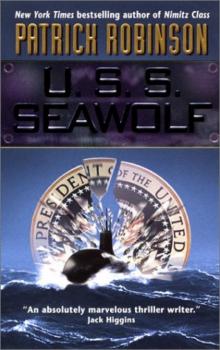 U.S.S. Seawolf am-4
U.S.S. Seawolf am-4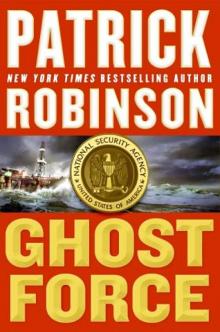 Ghost Force am-9
Ghost Force am-9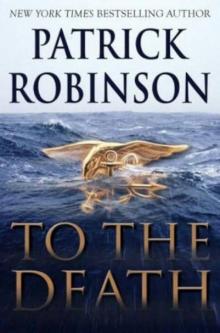 To the Death am-10
To the Death am-10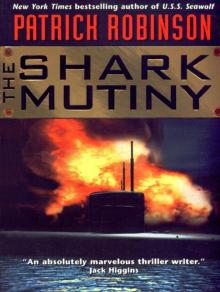 The Shark Mutiny
The Shark Mutiny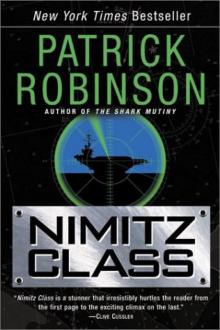 Nimitz Class am-1
Nimitz Class am-1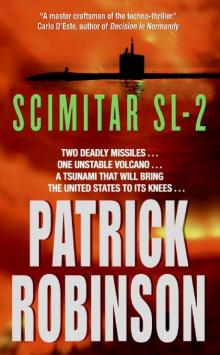 Scimitar SL-2 am-7
Scimitar SL-2 am-7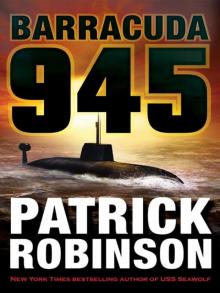 Barracuda 945
Barracuda 945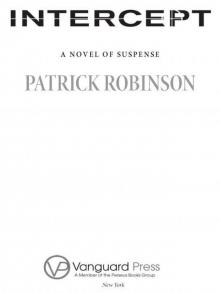 Intercept
Intercept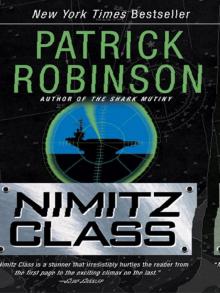 Nimitz Class (1997)
Nimitz Class (1997)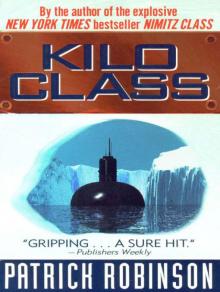 Kilo Class
Kilo Class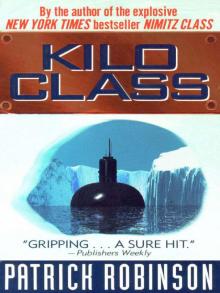 Kilo Class (1998)
Kilo Class (1998) Diamondhead
Diamondhead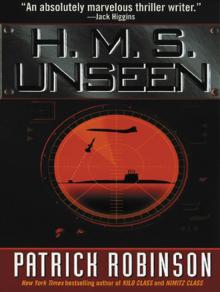 H.M.S. Unseen
H.M.S. Unseen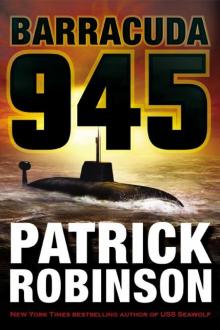 Barracuda 945 (2003)
Barracuda 945 (2003)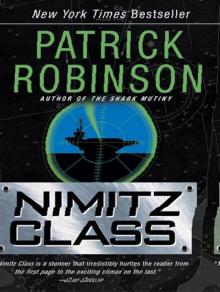 Nimitz Class
Nimitz Class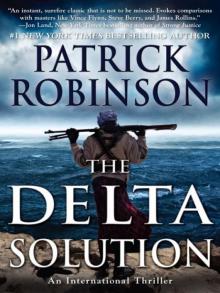 The Delta Solution
The Delta Solution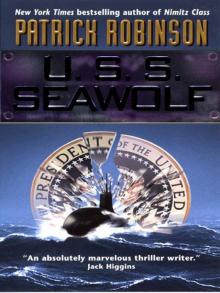 U.S.S. Seawolf
U.S.S. Seawolf